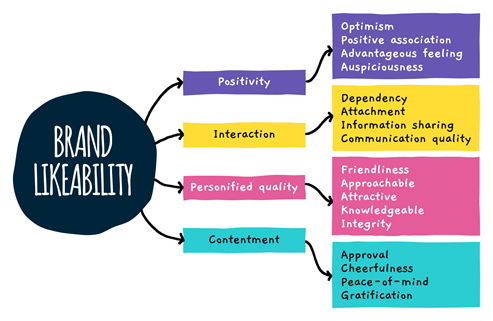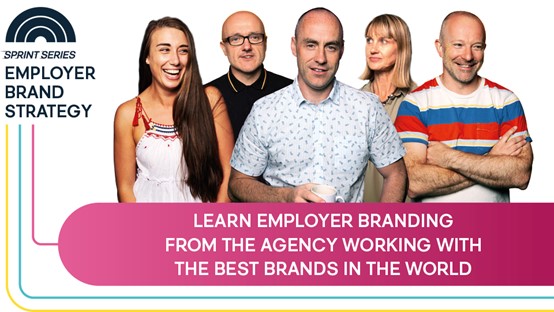Don’t forget to click ‘Like’ in your Employer Brand
2 min read.Likeability within a brand is under-rated because, simply put, brands that people like, perform better. Finding a way to emotionally connect with your audience is essential…
The golden rule of storytelling is to make them laugh or make them cry. And from a branding point of view, the goal of a brand is to humanise a corporate entity. That's why it exists.
Branding acts an accelerant to communicate a lot of information, consistently and predictably, in a very short space of time, usually one or two seconds, forming the impression that you get of that product and/or company.
It sounds rather obvious but all brand decisions, from a consumer audience perspective are emotional. Do I like it or not? So, by design, if you set out to build in some sort of likeability, you’re not just setting out to humanise it, you're setting out to humanise it and have a say in the character of the human that you're creating.
If your audience can see some sort of affinity, or they can appreciate something, like the cleverness of it or the humour, something that elicits a positive emotion, you're endearing that brand to them and raising the emotional bar. And in doing so, you’re making a powerful connection.
It has been proven over many years that if people make an instinctive decision that they like a brand, then the company does better. There is even a likeability scale for brands.

It might be that we love the purpose, the attitude, what it stands for, whatever it is, all the brands since the dawn of time that people have bought into, usually include an element of likeability.
For Nike, as an example, it's affinity with the best version of yourself. Because when you see Just Do It, you feel that the ‘It’ is in your world. You decide what that ‘it’ is. You fill in that gap with your own purpose, your own emotion, then aspire to be that version of yourself.
Likeable Brands
That brand likeability factor has taken many forms over the years. It has been a clown or a balloon, an audio jingle that you can't get out of your head. In the TED talks, that little water droplet is very distinct, and kind of cool, and unconsciously signals that you are about to learn something quite insightful and fascinating.
Whatever it might be, it's distinctly apparent in all brands that do well.
Another great example is Innocent drinks. The childlike typeface they use speaks of innocence, and the idea of innocence speaks about the raw nature of the product and the fact that they don't put sugar in their drinks, which is very clever. And when you look at their social media accounts, they use wit and smart humour, and it's very - and here’s that word again - likeable. All those things align perfectly and add up to a brand that you like. And it's owned by Coca Cola. It’s the friendly, lovable face of a corporate giant.
It's key when selling a consumer product to a mass audience, but it resonates in any sector.
Look at all the disruptors in the financial space, insurance for instance - possibly the driest product that you can market. Then look at Lemonade, and how it has disrupted insurance. They're not called Berkshire Hathaway they’re called Lemonade and the font is quite pop culture, each colour is vivid, and it's different than the other brands. They stand for making things easy. And people quite like that.
If you look at the business-to-business products over time that have really disrupted and shaken the market. Usually, the figurehead is a brand that you like.
At Metro Bank, one of the first things they did when describing the bank is tell everybody they were dog friendly and put water bowls out, which made them immediately likeable. Who knew water bowls can help you choose a bank?
But it was a very important proof point to say ‘we're new and different’ and it knocked a hard edge off a financial product and endeared you to the brand.
Likeable Employer Brands
And, of course, it is also pertinent in Employer Branding. Look at Netflix with its culture deck, stacking values and demonstrating how it shows up and the cheekiness in there, with a bit of verve in the language – great stuff.
Salesforce has a word for its culture called Ohana, which is all about working collaboratively, taking care of one another, and having fun together and it immediately makes you think of Hawaii. It's a great way of having a point of difference.
I love what VCA Animal Hospitals has just done. It's all about the heart shape, loving animals and improving the well-being of people, pets, and the planet. What’s not to like?
When you’re looking to draw people to your Employer Brand, authenticity, purpose, impact, and belonging should all come into play through a well-researched and measured process. But don’t forget to humanise it and go for instant appeal.
